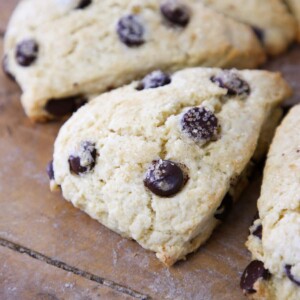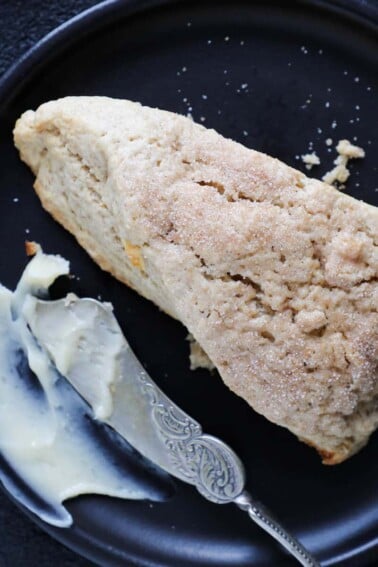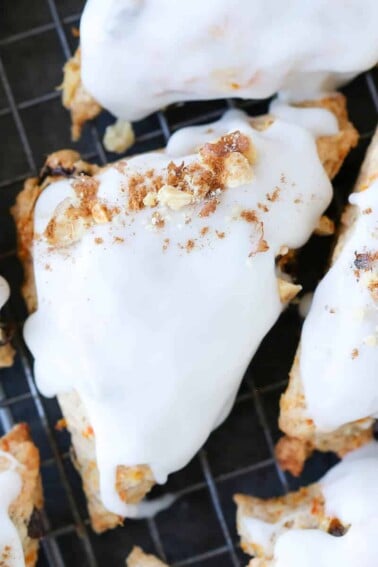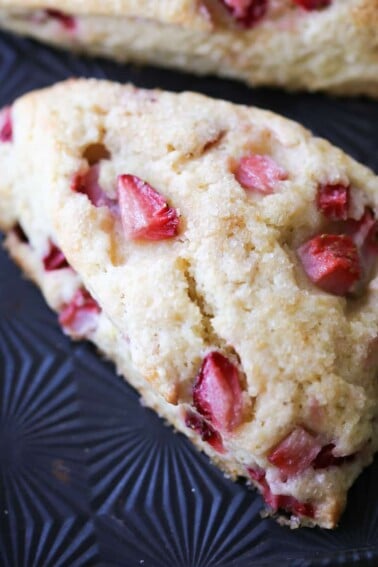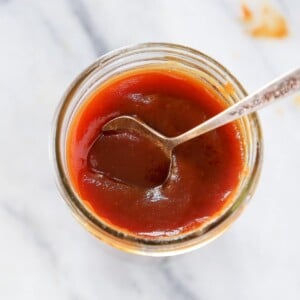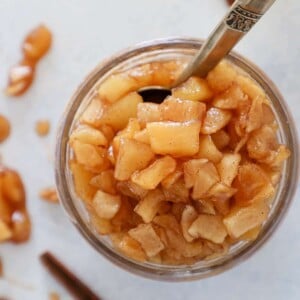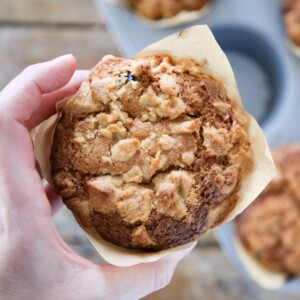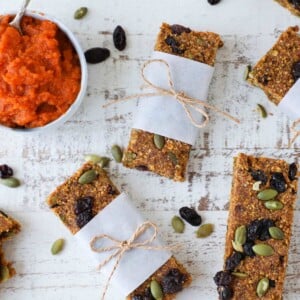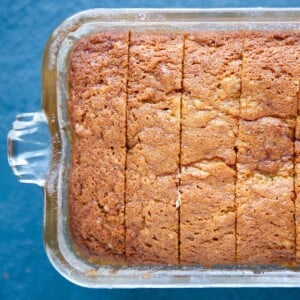Easy Scone Recipes
Fall Scone Ideas
What is the secret to making good scones?
A professional pastry chef’s 6 tips for making perfect english scones that are moist, tender and dense.
- Use cold, cubed butter. Keeping the butter cold limits gluten formation in two ways: by cutting the gluten strands short and by keeping the proteins cold. Cold butter will also release moisture via steam when it hits the hot oven creating even more rise.
- Cut the butter into the dry ingredients completely. This is my secret for perfect scones! This allows the butter to evenly coat all the flour, which will inhibit gluten formation. Too much gluten leads to tough rather than tender scones!
- Blend together the wet ingredients prior to adding. Rather than adding whole eggs followed by cream to the flour mixture and mixing long enough to incorporate them, pre-whisk together the eggs, cream and flavorings and add them all at once!
- Add the mix-ins before the flour is fully incorporated. I add chocolate chips, blueberries or any other inclusions before the flour has completely finished mixing in. This allows for an even distribution and limits the possibility of over-working the dough. Over-worked scones will be tough!
- Finish mixing by hand. I always finish mixing my scone dough by hand. When there is still visible flour, I turn everything out onto a hard, smooth surface and finish mixing by lightly kneading the dough together. The idea is to gently move dry flour into contact with some of the wet ingredients. This also allows for better distribution of the mix-ins!
- Bake just enough! Scones can be tricky to bake. I use the gentle touch method. With the lightest touch, I press the center of a scone. If the exterior gives a bit of resistance but doesn’t leave an impression, then they are perfectly baked. Baking until they are firm will lead to hard, over baked scones!
Most Popular Scones
Easy Scone Recipes
Strawberry Scones
Easy Scone Recipes
Blueberry Scones
Easy Scone Recipes
Chocolate Chip Scones
What to serve with scones
Create the perfect pastry basket
A homemade pastry basket is the perfect housewarming or hostess gift! It is also a beautiful way to welcome guests to your home. The key a variety of textures, flavors and a little something for everyone. Chef loves to include a little something for them to take home like a jar of apple butter or pumpkin spice mix!
All Easy Scone Recipes
Easy Quick Bread Recipes
Spiced Apple Scones
Easy Scone Recipes
Carrot Cake Scones
Easy Scone Recipes
Cinnamon Scones
Easy Scone Recipes
Chocolate Chip Scones
Easy Scone Recipes
Blueberry Scones
Easy Scone Recipes
